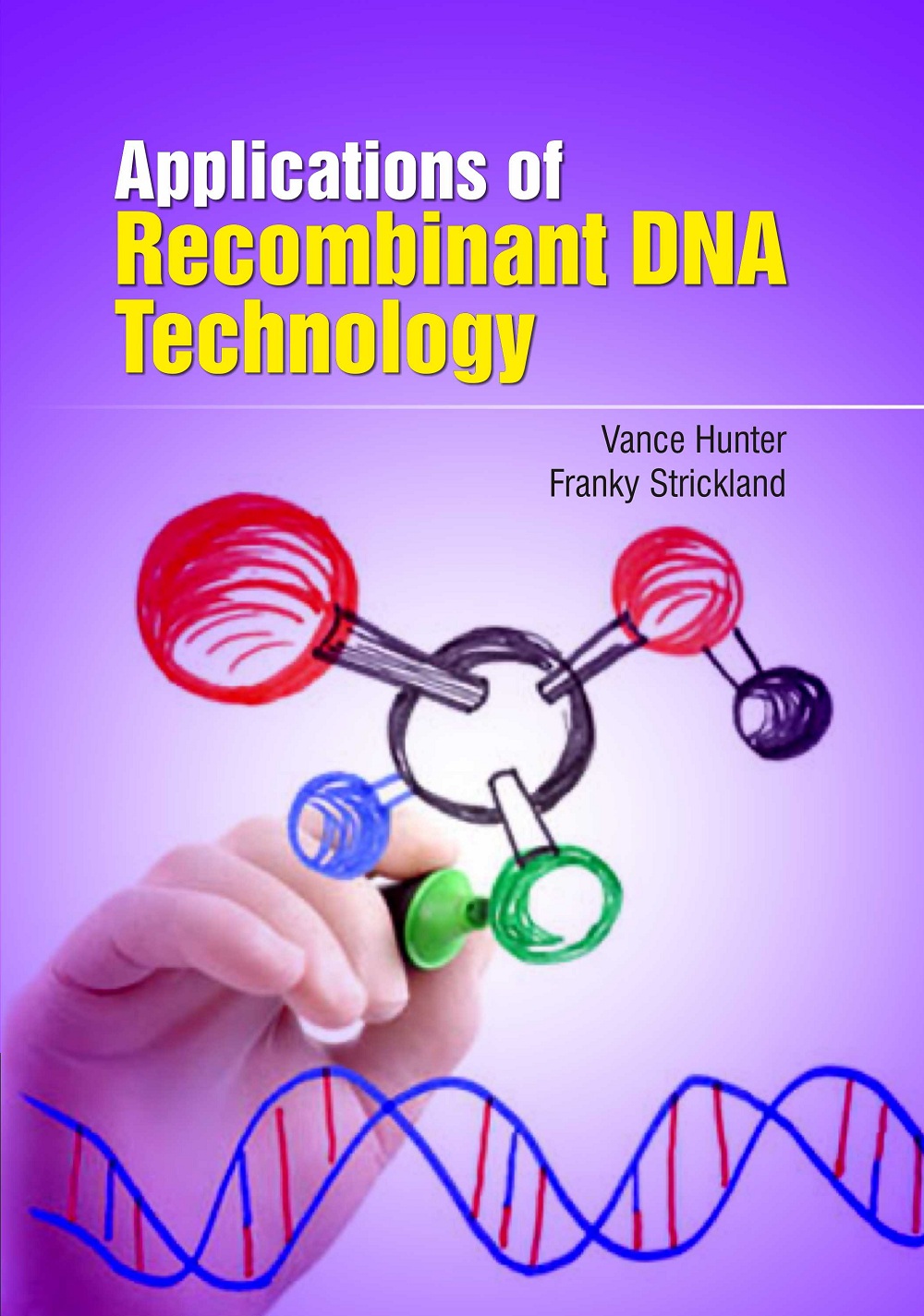Applications of Recombinant DNA Technology Vance Hunter & Franky Strickland
- ISBN: 9781788821322
- Edition: 1st
- ©Year: 2018
- List Price : 155
About the Book
Recombinant DNA technology is a technique which changes the phenotype of an organism (host) when a genetically altered vector is introduced and integrated into the genome of the organism. So, basically the process involves the introduction of a foreign piece of DNA structure into the genome which contains our gene of interest. This gene which is introduced is the recombinant gene and the technique is called the recombinant DNA technology. Inserting a desired gene into the genome of the host is not as easy as it sounds. It involves the selection of the desired gene for administration into the host followed by a selection of the perfect vector with which the gene has to be integrated and recombinant DNA formed. This recombinant DNA then has to be introduced into the host. And at last it has to be maintained in the host and carried forward to the offsprings. In molecular cloning, a vector is a DNA molecule used as a vehicle to artificially carry foreign genetic material into another cell, where it can be replicated and/or expressed (e.g.- plasmid, cosmic, Lambda phages). A vector containing foreign DNA is termed recombinant DNA. The four major types of vectors are plasmids, viral vectors, cosmids, and artificial chromosomes. Of these, the most commonly used vectors are plasmids. Common to all engineered vectors are an origin of replication, a multicloning site, and a selectable marker. Recombinant DNA Technology is focuses on the current state of knowledge on recombinant DNA technology and its applications. The book will provide comprehensive knowledge on the principles and concepts of recombinant DNA technology or genetic engineering, protein expression of cloned genes, PCR amplification of DNA, RFLP, AFLP and DNA fingerprinting and finally the most recent siRNA technology. It can be used by post-graduate students studying and teachers teaching in the area of Molecular Biology, Biotechnology, Genetics, Microbiology, Life Science, Pharmacy, Agriculture and Basic Medical Sciences.
Contents: 1. Introduction, 2. Biotechnology and Basic DNA Cloning, 3. Tools of Recombinant DNA Technology, 4. DNA Cloning, DNA Segment and Recombinant DNA Technology, 5. The Basic Principles of Gene Cloning and DNA Analysis, 6. Genomic DNA Libraries.
Vance Hunter received his Ph.D.from Kenya and is now Professor Emeritus. Fie has authored or co-authored several textbooks, including Molecular Biotechnology: Principles and Applications of Recombinant DNA. He is the recipient of many awards such as National Science Talent Search scholarship. His research interest includes molecular pathogenesis of Vibrio cholerae, diagnosis and management of oral pre-cancer and cancerarsenictoxicity & herbal remediation. He has around 150 original research publications to her credit.
Franky Strickland completed her B.Sc. and did her M.Sc. from Tanzania. She then joined Institute of Chemical Biology as research fellow and obtained her Doctoral degree (PhD). She started working as a Scientific Assistant and superannuated as Chief Scientist & Head, Molecular & Human Genetics Division & Head, Academic Affairs Division. At present, she is as Emeritus Scientist and Professor Emeritus. She has guided 25 Ph.D. students, 20 Master of Dental Surgery students, and more than 200 students for short term for MSc/MSPharm/MTech dissertations. She has authored many books including two books "Recombinant DNA Technology" and "Microbial Genetics" under sole authorship for post-graduate students. She is the recipient of several awards such as National ScienceTalent Search scholarship.

